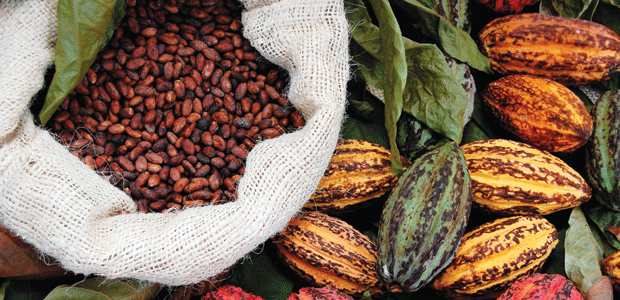Advertisement
Check Your Chocolate
Cocoa is the real thing

Over the last decade, the medicinal value of cocoa has been the focus of scientific scrutiny. For example, researchers from the United Kingdom found that cocoa is rich in naturally occurring polyphenols, plant chemicals with antioxidant activity.
Though in some cases dietary antioxidants are not well absorbed, researchers have found that cocoa polyphenols are well absorbed and utilized.
Heart benefits
The majority of studies involving cocoa have been conducted in the cardiovascular realm, and it is becoming clear that cocoa is a very heart-healthy food. Human studies have shown that cocoa improves blood flow through the cardiovascular system, lowers blood pressure, reduces inflammation, lowers the less desirable LDL cholesterol in favour of elevations in HDL (good) cholesterol and, overall, protects against arterial plaque build-up.
Other promising benefits
The ability of cocoa to improve blood flow and reduce inflammation has led researchers from various other medical disciplines to examine the potential value of cocoa. Since many chronic medical conditions are rooted in low-grade inflammation and compromised blood flow, it is not surprising that cocoa would be the subject of research in areas that include:
- Dementia
- Diabetes
- Development of the visible signs of aging
- Fatigue
- Blood sugar and insulin level balancing
Beauty benefits
The latest line of research has focused on beauty aspects, and indeed high polyphenol cocoa powder has been shown to improve blood flow to the skin, improve hydration, and decrease roughness and scaling in the skin of middle-aged adults.
Cocoa versus chocolate
It is important to note that cocoa and chocolate are two different things. Cocoa is the non-fat component of ground cocoa beans. Chocolate contains varying amounts of cocoa, sugar, and the fat derived from cocoa liquor known as cocoa butter.
In order of their cocoa polyphenol amounts:
- Dark chocolate contains varying amounts.
- Milk chocolate contains a relatively small amount.
- White chocolate contains none.
Most health-related chocolate research has been conducted on cocoa powder with a high percentage of polyphenols—up to three times higher than mass-marketed cocoa powders and far higher than the amounts found in milk chocolate bars, or even many dark chocolate bars.
Research certainly supports the value of cocoa polyphenols; however, since chocolate itself is calorically dense, this should not be translated as a license to eat unlimited quantities of chocolate for health.
Much like red wine for health promotion, moderation is the key for chocolate. Thankfully, high-polyphenol cocoa powders, low in calories and fat, are now becoming commercially available.





